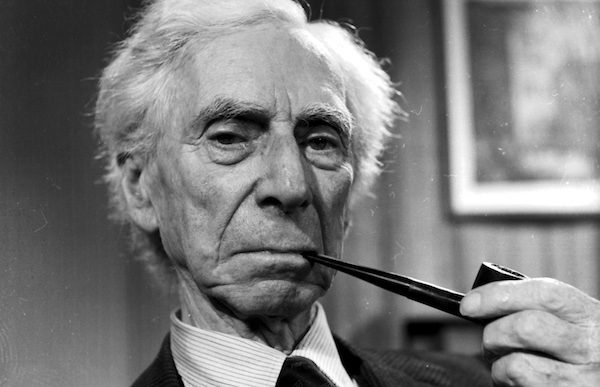The following is intended for a Sunday School class at McIlwain Presbyterian Church.
Atheists: A Sampling of the More Popular Players:
Sam Harris

Richard Dawkins

Christopher Hitchens (deceased)

Daniel Dennet

Bill Nye

Lawrence Krauss
Peter Singer

Alex Rosenberg

Steven Pinker

Alex O’Connor (Cosmic Skeptic)

Frederick Nietzche (deceased)

Bertrand Russel (Deceased)

———-
Humanist Manifesto I
FIFTH: Humanism asserts that the nature of the universe depicted by modern science makes unacceptable any supernatural or cosmic guarantees of human values. Obviously humanism does not deny the possibility of realities as yet undiscovered, but it does insist that the way to determine the existence and value of any and all realities is by means of intelligent inquiry and by the assessment of their relations to human needs. Religion must formulate its hopes and plans in the light of the scientific spirit and method.
Humanist Manifesto II
THIRD: We affirm that moral values derive their source from human experience. Ethics is autonomous and situational needing no theological or ideological sanction. Ethics stems from human need and interest. To deny this distorts the whole basis of life. Human life has meaning because we create and develop our futures. Happiness and the creative realization of human needs and desires, individually and in shared enjoyment, are continuous themes of humanism. We strive for the good life, here and now. The goal is to pursue life’s enrichment despite debasing forces of vulgarization, commercialization, and dehumanization.
Humanist Manifesto III
Ethical values are derived from human need and interest as tested by experience.Humanists ground values in human welfare shaped by human circumstances, interests, and concerns and extended to the global ecosystem and beyond. We are committed to treating each person as having inherent worth and dignity, and to making informed choices in a context of freedom consonant with responsibility.
———
Resources
An Amoral Manifesto (Part One), Joel Marks
Philosophers Debate The Moral Argument for God, Arif Ahmed vs Glenn Peoples
Ethics for the Nonreligious, Paul Kertz
People Suffer- Who Cares, Veritas Forum
Can We Really Be Good Apart From God? Shelly Kagan vs William Lane Craig
Is Good From God? Sam Harris vs William Lane Craig
The Case for Utter Hopelessness: Why Atheism Leads to Unyielding Despair, Austin Brown
Why Universities Can’t Do Without God, James Anderson
The Meta-Ethical Argument for God, Peter S Williams
Can There Be Morality Without God, Peter Singer vs Dinesh D’Souza
(WEEK TWO)
The Case for Utter Hopelessness:
Why Atheism Leads to Unyielding Despair
The Moral Complaint Problem
1) When you denounce something as wrong, you are presupposing an ethical standard- one that obligates you and I to respect the same rule set- one that necessarily binds us together.
2) But on atheism there is no such objective standard.
3) Therefore, upon what basis should I feel compelled to take seriously your complaint? Or to say it differently, why are you acting like I should feel obligated to take your moral complaint seriously? You seem to want me to act like an objective moral standard exists. Why are you acting like that?
A) Now this isn’t to say that you can’t denounce things. You can. I mean who is to say that you can’t get all red in the face or fall on the ground and throw a temper tantrum? Go for it, I guess. It’s not like it is morally wrong or something…
B) I mean after all, maybe it makes you feel better to shout and complain, like burping. I dunno. You tell me.
C) Or maybe I will just so happen to share your feelings about the matter. In that case, maybe I will take your complaint seriously. Or maybe I won’t. I suppose it depends on a variety of other factors.
The Multi-Brain Problem
1) Rocks don’t have moral feelings. Trees don’t have moral feelings. Brains do. And a person’s sense of rightness and wrongness is inexorably tied to how their particular brain is wired.
2) There are all kinds of different brains that harbor all kinds of different preferences. And there are all kinds of potential brains that could exist that would harbor all kinds of different preferences.
3) On atheism, there is no “correct brain” with the right kind of moral preferences. Brains are the product of the whimsical tides of chance in a universe that doesn’t care at all about what kinds of brains come to be.
4) “When viewed from the perspective of the universe, we carry around in us an infinitesimally small organ that happens to create moral intuitions. It is a curious case of hubris to think that these chemical reactions carry universal weight, as if anything outside of the emotional matrix of our being should care about what transpires between our ears. It’s just an emotion: a tiny, neurological, fleeting, subjective feeling.”
The Game of Ethics in a Godless World
If each human being is free from the constraints of objective morality, and each serves as a kind of god unto themselves, doing ultimately what is right in their own eyes, individuals will tend to congregate with those who happen to share a similar vision of how the world should operate.
But as the groups form and grow and codify their ethical views into rules and laws and customs, these differing groups will eventually bump into one another in disagreement. Here they might try to adjudicate their differences with reason and generous listening. Or they might not. They might refrain from shouting and pushing and killing one another. Or they might not. They might seek compromise. Or they might not. It all depends upon what the particular congregation of brains thinks is the best course of action.
It should be acknowledged that this is ultimately a game of power and influence. Can you win enough to your side to marginalize detractors? To “justify” the use of force to silence others? To make others look stupid or backward or evil? And if you know it is akin to a game (with high stakes, no doubt), how might such knowledge affect your strategy for winning?
Knowledge and Ethics are Inexorably Intertwined
2+2 = 4
Should you believe that? Ought you to believe it? Are you morally obligated to believe it? If you don’t, have you don’t something morally objectionable? But how can it be morally wrong if there is no objective moral standard?
The Is/Ought Problem
Reality is big pile of stuff. It is what it is. But its “is-ness” doesn’t tell us how things ought to be. In other words, reality doesn’t come with a prescription of how things ought to be.
Take smoking. It can lead to cancer. That is a fact. However, note that there is always a leap when we go from saying what is (smoking tends to cause cancer) to what we should therefore do (we should therefore not smoke). A moral ought does not arise from the is. In other words, there is a fact-value gap. Facts don’t tell us what we are morally obligated to do. They just describe things.
So by way of another example, blowing someone up ends their life. That is the is. That is a fact. But in order to go from that fact to something like “blowing someone up is morally wrong” requires a jump, and it is a jump that the facts of reality simply do not care about. All the matter in the terrarium says not one word about what should or should not be. As such, our moral statements are pasted on to the facts and are not justified by them.
Main Atheist Retort:
So what if we don’t have an absolutely objective standard of morality. We don’t need one to be good or pursue that which is obviously good for us.
1) Evolution has outfitted us with social impulses. We want to cooperate. We want to be creative and love and enjoy life. It’s in our DNA.
2) And we largely know what is beneficial and conducive to happiness and human flourishing. So if we want to attain a more enjoyable and peaceful and happy society, which will increase our individual happiness, we need to promote those actions/laws that facilitate such ends. It is fairly obvious what promotes it and what tears it down, so we need to adopt a set of behaviors/virtues that better furnish it.
3) This basic rule set forms the basis of morality. And it is fairly objective since we know, broadly speaking, what conditions makes human life crappy and what conditions make life better.
4) Therefore, the good is that which promotes human flourishing and that which does not. Or to broaden it a bit, actions that unnecessarily harm others is morally bad, while that which promotes the well-being of others is morally good. It doesn’t get any more basic or obvious than that. For what else could morality be concerned about if not that?
1b) Or as atheist, Gretta Christina, answers: “Atheists are moral for the same reasons believers are moral: because we have compassion, and a sense of justice. Humans are social animals, and like other social animals, we evolved with some core moral values wired into our brains: caring about fairness, caring about loyalty, caring when others are harmed.”
1c) Frank Zindler, former president of American Atheists, says, “As human beings, we are social animals. Our sociality is the result of evolution, not choice. Natural selection has equipped us with nervous systems which are peculiarly sensitive to the emotional status of our fellows. Among our kind, emotions are contagious, and it is only the rare psychopathic mutants among us who can be happy in the midst of a sad society. It is in our nature to be happy in the midst of happiness, sad in the midst of sadness. It is in our nature, fortunately, to seek happiness for our fellows at the same time as we seek it for ourselves. Our happiness is greater when it is shared.”
“Because we have the nervous systems of social animals, we are generally happier in the company of our fellow creatures than alone. Because we are emotionally suggestible, as we practice enlightened self-interest we usually will be wise to choose behaviors which will make others happy and willing to cooperate and accept us – for their happiness will reflect back upon us and intensify our own happiness. On the other hand, actions which harm others and make them unhappy – even if they do not trigger overt retaliation which decreases our happiness – will create an emotional milieu which, because of our suggestibility, will make us less happy… As a general – though not absolute – rule, we must choose those behaviors which will be likely to bring us love and acceptance, and we must eschew those behaviors which will not.”

